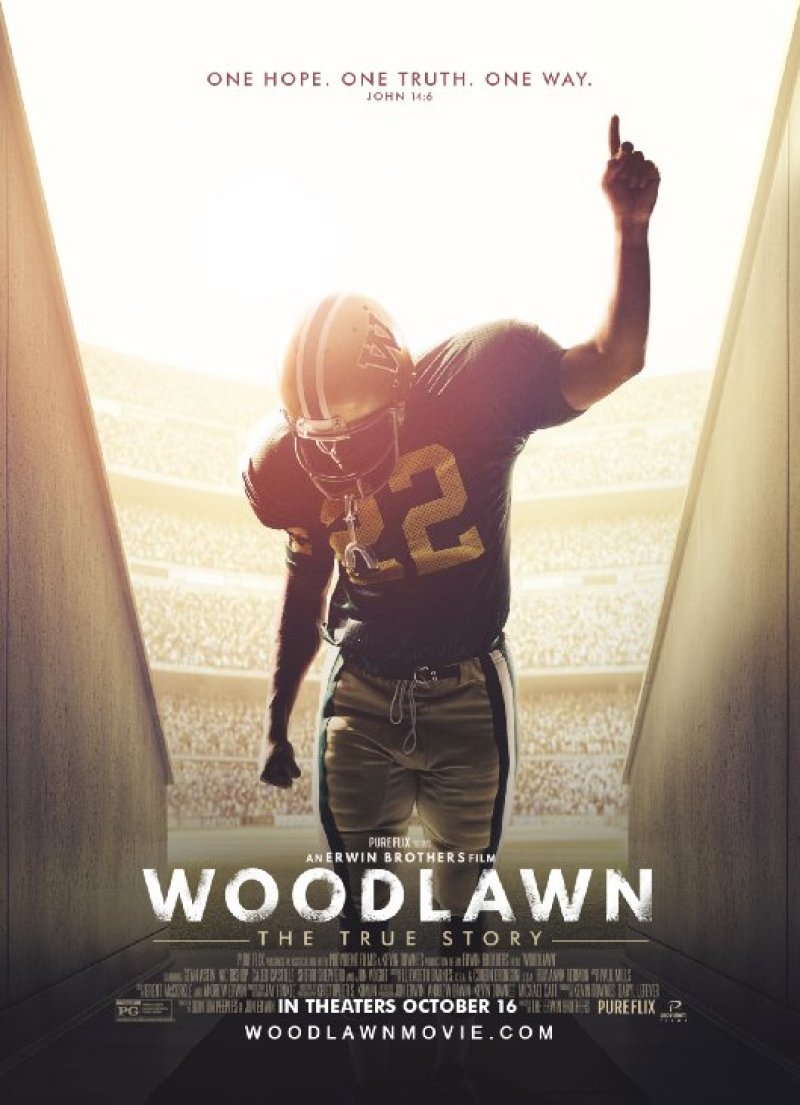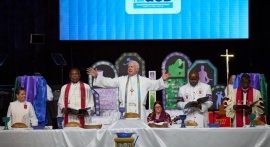
The new film "Woodlawn" hit the theatres on October 16th, and tells an extraordinary real life story of how a chaplain's motivational speeches based on faith in Jesus Christ eased the racial tensions plaguing a high school team in Birmingham, Alabama in the 1970s.
Those were the days after integration, when undercover hatred between the races was on the boil, and it was not very different in schools. In such an environment, where there was hardly any unity between the players, a saga of beautiful reconciliation unfolded, championed by the preacher Hank Erwin played by Sean Astin [from Rudy's].
Woodlawn recounts how Christian fellowship brought together both black and white students of the high school football team at the peak of opposition to the desegregation.
The film is based on the life of Tony Nathan, played by Caleb Castille. Nathan went on to play for the University of Alabama and NFL. He was among the university's first black football players.
Nic Bishop plays Coach Tandy Geralds, who doesn't approve of the players' faith in Jesus at first, but comes to welcome it himself later, while University of Alabama coaching hero Paul "Bear" Bryant is played by Jon Voight of "Ray Donovan" fame.
Hank starts a "Jesus Movement" in the town, a term used in the 1960s to 70s to describe the nationwide revival involving young men and women who stood against the hippie movement of the day.
The movie is co-directed by Andrew and Jon Erwin, the brothers whose father is the key character -- chaplain Hank -- in the film. Producer of this real-life epic is actor Kevin Downes, who has starred in Christian films such as Courageous, and Mom's Night Out.
"Woodlawn is a really special story that the Erwin brothers [directors] grew up with. Their dad actually is one of the key components in the film. [He is the] character Hank. He's a sports chaplain that ends up at this racially torn, last to integrate high school in Birmingham, Alabama, and preaches a message that was just really timely that this team needed to hear," Downes told the Christian Post.
"They were ready to hear it and made a decision to change because they were sick and tired of the fighting and the hate, and they wanted to unify as a team and learn how to love each other. And all of a sudden they started winning football games. It led to the largest high school football game ever played in the history of the state of Alabama. Over 42,000 people. It came together all in the name of one theme and that was 'One Way.' So they gave all the credit to God whether win or lose because there was only One Way," he added.
Daagye Hendricks, a member of Birmingham Board of Education, said at a theatre filled with mostly black students, "Think about life, think about society, think about the changes in the world.. Because what you'll see is that a lot of things that happened back in the day really haven't changed much, and it's gonna be you guys and your leadership that's gonna make the change going forward."
Downes said he believes that the movie's message has a great significance in these times too, as witnessed in the recent riots in Charleston and Baltimore, which had racial undertones.
"Woodlawn is sharing a true story that actually happened to [current generations] that is showing that we can come together, we can heal, there is a way out of this and there's one way out of it. And that's Jesus Christ," he continued.
The movie opens with the scene where the chaplain asks them:
"Aren't you sick of it? Does this kind of thing happen so much that it just feels normal? What would you say if I told you, 100 percent, it doesn't have to be this way? What would you be prepared to do if there was a better way? If there was an answer?"



















